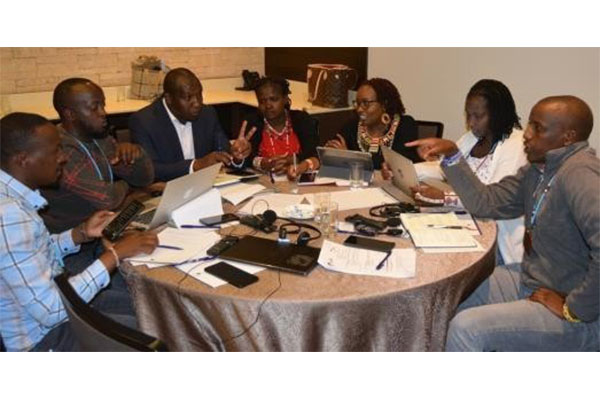Empowering Indigenous Voices in the Fight Against Climate Change
In a room filled with the hum of diverse perspectives and united aspirations, representatives from the National Gender and Equality Commission (NGEC), Mainyoito.
Pastoralists Integrated Development Organization (MPIDO), the World Bank, GIZ, and Africa’s Indigenous Peoples in Nairobi.
The technical workshop was a critical step in revisiting the Indigenous Peoples Call to Action, initially presented during the inaugural Africa Climate Summit in 2023. The atmosphere was one of urgency and solidarity as stakeholders sought to build on the momentum of that historic moment.
Hosted by MPIDO, the event saw Indigenous leaders, development partners, and policymakers engage in passionate discussions. Their goal: to ensure that Africa's Indigenous populations—often the first to feel the devastating effects of climate change—are not left behind in the global push for solutions.
This workshop aimed to refine key messages from the previous year’s summit, translating them into actionable steps that could be implemented across the continent.
A key objective of the workshop was the review of the outcomes from the Nairobi Climate Summit. This allowed Indigenous organizations to reflect on the progress made and chart a course for stronger engagement with the African Union (AU), regional economic communities (REC), and international institutions such as the United Nations.
It was clear that effective climate action must go beyond rhetoric and declarations. It requires long-term partnerships, investment, and a deep understanding of the lived experiences of Indigenous communities.
The workshop yielded significant recommendations for addressing the pressing challenges of climate financing, renewable energy investments, and biodiversity conservation, with a focus on Indigenous rights.
Stakeholders emphasized the importance of implementing Free, Prior, and Informed Consent (FPIC) processes in all projects affecting Indigenous lands by 2025. This would ensure that Indigenous voices are not just heard but respected, particularly in the growing sectors of carbon trading and renewable energy.
The need for equitable climate financing was another critical point of discussion. Participants called for the establishment of an Indigenous-led Climate Fund, aimed at ensuring that 5% of national and global climate finance is directly allocated to Indigenous-driven projects by 2026. This, they argued, would allow Indigenous communities to have a direct say in projects that impact their livelihoods and the ecosystems they have long protected.
In an era where carbon trading and renewable energy are becoming central to climate strategies, Indigenous leaders at the workshop made it clear that they should not be passive beneficiaries but active participants. They proposed creating a benefit-sharing framework and a training program for Indigenous peoples to better understand and engage in carbon trading. This would not only safeguard their rights but also ensure that they reap the economic benefits of these burgeoning industries.
The conversations were forward-looking but grounded in the realities of Indigenous life. The proposed establishment of a biodiversity monitoring program, led by Indigenous communities themselves, reflects a recognition of the invaluable knowledge these populations hold.
Such initiatives, if successfully implemented, could result in a 30% increase in biodiversity indices in participating areas over five years, setting a powerful precedent for Indigenous-led conservation efforts globally.
For NGEC, the workshop emphasized the crucial intersection between gender, equality, and climate change.
NGEC’s presence and participation in the workshop highlighted its commitment to ensuring that vulnerable and marginalized populations are at the forefront of Kenya’s climate agenda.
As the workshop concluded, participants left with a renewed sense of purpose and a shared vision for the future. The Indigenous organizations in attendance are set to take their recommendations to international forums, including the Convention on Biological Diversity in Colombia and the United Nations Climate Change Conference (COP29) in Azerbaijan.
The African Union is expected to take a leading role in implementing these recommendations, with climate change likely to become a central theme for the Union in 2025.
For now, the work continues. The partnerships formed and the commitments made in that room will shape the future of climate resilience across Africa’s Indigenous lands. And as these communities stand at the front lines of climate change, their voices, rights, and knowledge will be essential in guiding the path forward.
NGEC Programme Officer Fanuel Lolopich(third left) articulates key insights during a roundtable discussion with participants, emphasizing the importance of indigenous voices in the fight against climate change.


Comments